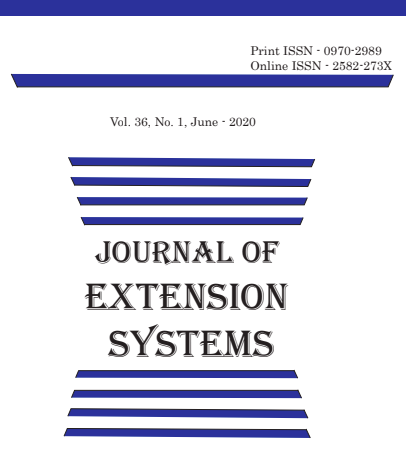Knowledge Level and Constraints in Adopting the Recommended Mitigation Strategies on Climate Change in Haryana
DOI:
https://doi.org/10.48165/JES.2020.36202Keywords:
Agro-met Advisory Services, Climate change, AgricultureAbstract
The greatest influencer of agricultural productivity is the weather. Climate is typically defined as the normal weather, or more precisely, as the statistical explanation of important parameters in relations of the mean and variability over time scales extending from months to thousands or millions of years. Agriculture in India, as well as the respite of the world, is mostly reliant on the weather. Global warming has had an important impact on agriculture and its output. The shift in growing seasons and changes in agricultural zones have been exacerbated by rising temperatures. Changes in rainfall patterns, on the other hand, pose a severe threat to agriculture, affecting the country’s economy and food security. The sale of agricultural products such as fertilizers, agro-chemicals and tractors are also affected by the delayed or insufficient monsoons. As a result, the farmer’s income is impacted. The present study conducted during 2020-21 focuses on Knowledge level farmers on climate change and constraint experienced by the farmers in adopting recommended mitigation strategies in Hisar district. The majority of beneficiary farmers (48.89 per cent) had high knowledge level on Agro-met Advisory Services whereas majority of non-beneficiary farmers (67.76 per cent) had low knowledge level on Agro-met Advisory Services. Lack of technical skills and capacities for technology adoption, lack of awareness and sensitization about the creation and use of new technologies, non-availability of timely inputs, and lack of information about long-term mitigation strategies were the major constraints.
Downloads
References
Downloads
Published
Issue
Section
License
Copyright (c) 2022 Journal of Extension Systems

This work is licensed under a Creative Commons Attribution-NonCommercial-NoDerivatives 4.0 International License.

